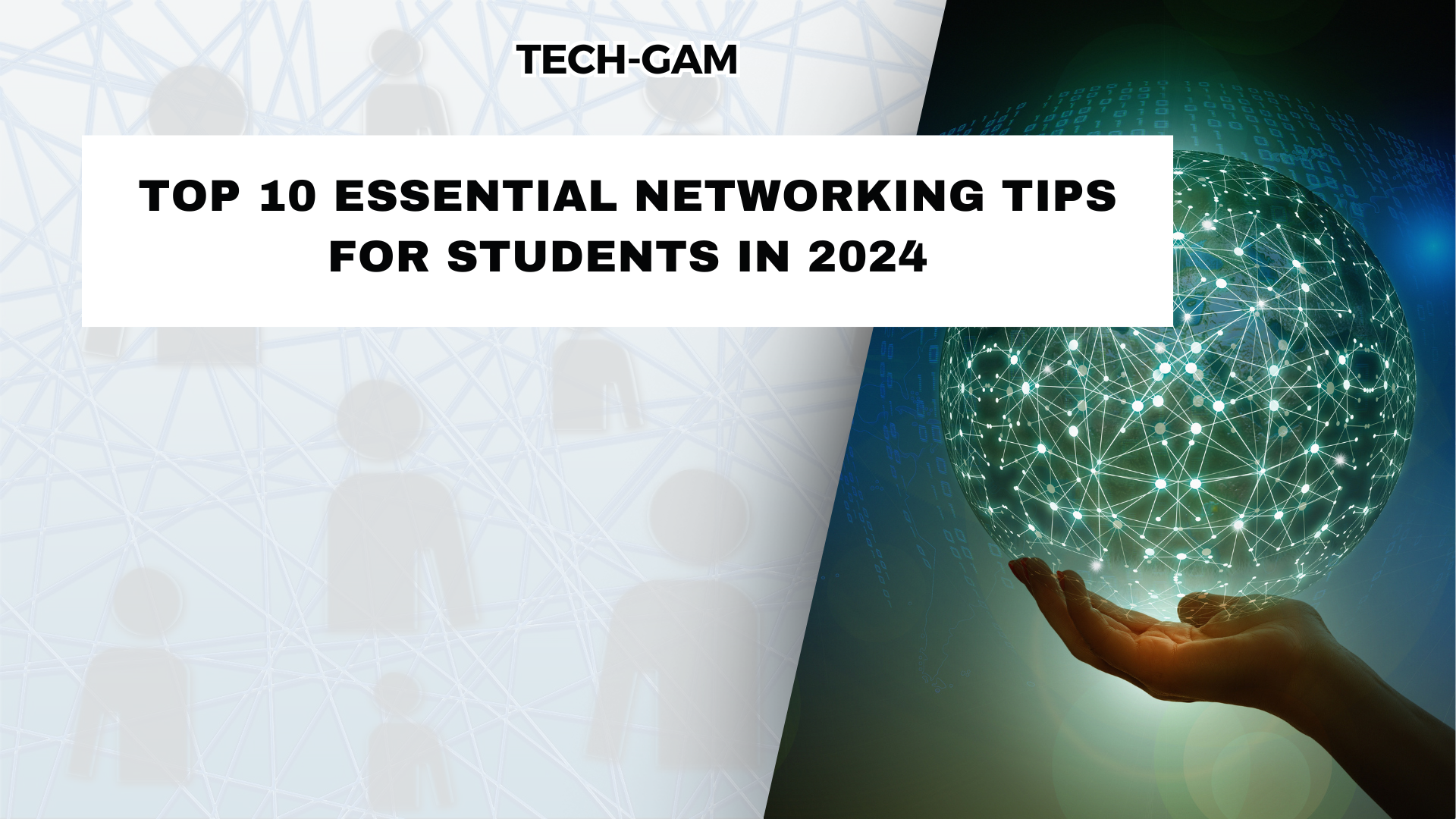Introduction
Networking is a critical skill that can help students build valuable relationships, discover new opportunities, and lay the foundation for future career success. Learning how to network effectively can connect you with industry professionals, potential mentors, and peers who share similar goals. Here are some essential networking tips designed specifically for students to help you make meaningful connections and maximize your potential.
1. Start Networking Early
- Why It’s Important: Networking isn’t just for graduates or professionals. Starting early gives you more time to build genuine relationships that can support your career goals over the years.
- How to Get Started: Engage with your professors, classmates, and alumni early on. These relationships can provide valuable insights and open doors to internships or job opportunities later.
2. Attend Campus Events and Career Fairs
- Why It’s Important: Campus events and career fairs are designed for students to connect with professionals and recruiters in various fields.
- How to Make the Most of It:
- Dress professionally to make a good first impression.
- Prepare a brief introduction about yourself, including your major, interests, and career goals.
- Gather contact information and follow up with the people you meet.
3. Join Student Organizations Related to Your Major
- Why It’s Important: Student organizations are great for building connections with peers who share similar academic and career interests.
- How to Network Through Clubs:
- Attend meetings regularly to become a familiar face.
- Take on leadership roles, which can increase your visibility and give you networking experience.
- Connect with guest speakers and event attendees to expand your network outside the club.
4. Use LinkedIn to Your Advantage
- Why It’s Important: LinkedIn is the leading professional networking platform, and it’s a must-have tool for students looking to build a professional network.
- How to Maximize LinkedIn:
- Create a polished profile that highlights your skills, experiences, and goals.
- Connect with classmates, professors, and professionals in your field.
- Join LinkedIn groups related to your career interests to participate in discussions and make connections.
5. Seek Internships and Part-Time Work
- Why It’s Important: Internships and part-time jobs provide hands-on experience and opportunities to connect with industry professionals.
- How to Network on the Job:
- Build relationships with your coworkers and supervisors.
- Ask questions to show your eagerness to learn and grow.
- Stay in touch after the internship ends, as these connections can be valuable for future opportunities.
6. Ask Professors for Advice and Introductions
- Why It’s Important: Professors often have extensive networks in their respective fields and can provide guidance or introductions to help you connect with industry professionals.
- How to Approach Professors:
- Meet with them during office hours to ask for career advice or mentorship.
- Attend department events where professors are likely to bring in industry guests.
- Be respectful of their time, and express genuine interest in their work to leave a positive impression.
7. Participate in Online Forums and Webinars
- Why It’s Important: Online communities and events allow you to connect with professionals globally, expanding your network beyond your local area.
- How to Network Online:
- Join forums and groups related to your field of study (e.g., Stack Overflow for tech students, ResearchGate for science students).
- Attend webinars and participate in Q&A sessions to engage with speakers and attendees.
- Follow up with individuals you connect with and invite them to connect on LinkedIn or other platforms.
8. Practice Your Networking Skills
- Why It’s Important: Networking can feel intimidating at first, so practicing your approach and refining your communication skills is essential.
- How to Practice Networking:
- Role-play networking scenarios with friends or family.
- Attend smaller events to practice speaking with new people in a low-stakes environment.
- Work on your “elevator pitch” so you can introduce yourself confidently and clearly.
9. Follow Up After Meeting People
- Why It’s Important: Following up shows professionalism and helps reinforce the connection you’ve made with someone.
- How to Follow Up:
- Send a polite email or LinkedIn message within a day or two of meeting someone.
- Mention something specific you discussed to personalize your message.
- Express your appreciation for their time and include any relevant questions or comments.
10. Be Genuine and Patient
- Why It’s Important: Networking is about building relationships, not just collecting contacts. People appreciate sincerity and are more likely to help if they see genuine interest.
- How to Network Genuinely:
- Show interest in others’ careers and experiences by asking thoughtful questions.
- Avoid pushing for favors too quickly; focus on building rapport first.
- Maintain regular, friendly communication, even when you’re not asking for anything specific.
Tips for Making Lasting Connections
In addition to the above strategies, here are some extra tips to help you create lasting relationships through networking:
- Be Prepared: Whether it’s an event or a coffee chat, go in with a few questions or talking points in mind.
- Give Before You Ask: Offer value, whether it’s sharing information, congratulating someone’s achievements, or offering help in areas you’re knowledgeable about.
- Stay Organized: Keep track of who you meet and what you discuss. Apps or spreadsheets can help you remember important details for future conversations.
Conclusion
Building a strong professional network as a student can open doors to future internships, job opportunities, and mentorships. By attending events, utilizing platforms like LinkedIn, and maintaining genuine connections, you can create a network that supports your career growth. Remember, networking is about quality, not just quantity, so focus on building relationships that align with your goals and interests. Start early, stay consistent, and you’ll be well on your way to a successful future.

